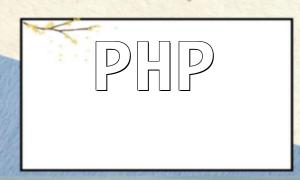When selecting a PHP framework, the needs vary significantly depending on the project size. Small projects focus on flexibility, simplicity, and customizability, while large projects emphasize scalability, testability, and modular design.
For example, Laravel Spark is a lightweight solution based on Laravel, designed specifically for small SaaS applications, providing out-of-the-box features such as authentication, billing, and support, greatly simplifying project startup and development.
Symfony, as an enterprise-level PHP framework, features a highly modular architecture and powerful testing tools, enabling seamless integration with various third-party libraries and services, meeting the complex needs of large projects.
Choosing the right PHP framework significantly improves project development efficiency and quality. Developers should consider project size and characteristics, balancing flexibility, scalability, and testing support to select the most suitable framework solution.








